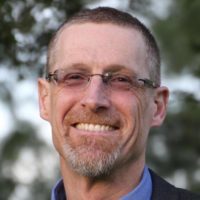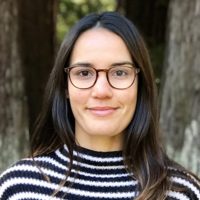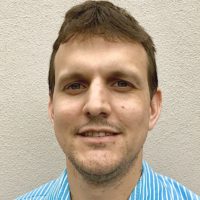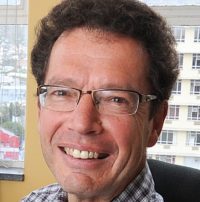Inclusive Economies Workshop: South Africa — Applying the Rockefeller Inclusive Economies Framework
August 25, 2017
Meeting Purpose and Goals
The South African government inherited various dysfunctional systems and structures from the past which have proved difficult to shift, including a concentrated, capital-intensive economy, a divided educational and training system, and entrenched spatial and social divisions. The Constitution guarantees a range of compelling socio-economic rights and freedoms, yet a large section of the population remains impoverished and race remains a key dimension of inequality. The imperative for inclusion is widely accepted at national, provincial and local levels, but a practical way forward remains elusive. In particular, what can be done at the local level, within city-regions, to improve living standards, general well-being and social mobility. In partnership with the Human Sciences Research Council (HSRC), we analyzed patterns of inclusivity in the eight largest metropolitan regions in South Africa. The workshop in South Africa explored inclusion within and across these metros, and asked how does the Inclusive Economy framework provide a helpful provocation and entry point into the inclusive growth debate in South Africa.
Agenda
August 25, 2017
9:00 am Welcome and Introductions
9:15 – 10:30 am Introducing the Rockefeller Inclusive Economies framework and its application by Prof. Chris Benner, Everett Program Chair, University of Santa Cruz, Gabriela Giusta, Everett Program, University of Santa Cruz, and Prof. Gordon McGranahan: Institute of Development Studies, University of Sussex
10:30 – 11:30 am Q&A
11:00 am Break
11:30 – 12:30 pm Inclusive Growth in South Africa: In search of ‘Real Economic Transformation’ by Prof. Ivan Turok, Director Economic Performance and Development (EPD), HSRC and Dr. Justin Visagie, EPD, HSRC
12:30 – 1:00 pm Q&A
1:00 pm Lunch
2:00 – 3:00 pm Presentation by respondents by Roland Hunter, Cities Support Programme, National Treasury, Puvendra Akkiah, Spatial Development and Land Use Manager, eThekwini Metropolitan Municipality and Kirsten Pearson, Economies of Regions Learning Network
3:00 – 4:00 pm Collective Discussion
4:15 – 4:30 pm Concluding Remarks
Organizers

Chris Benner •
Bio
Dr. Chris Benner is the Dorothy E. Everett Chair in Global Information and Social Entrepreneurship, Director of the Everett Program for Technology and Social Change, and a Professor of Environmental Studies and Sociology at the University of California, Santa Cruz. His research examines the relationships between technological change, regional development, and the structure of economic opportunity, focusing on regional labor markets and the transformation of work and employment. He has authored or co-authored six books and more that 70 journal articles, chapters and research reports. His most significant books include: Equity, Growth and Community (2015), which examines diversity and dynamics of regional knowledge communities, and their relationship to social equity and economic growth; Just Growth (2012) which helps uncover the subtle and detailed processes, policies and institutional arrangements that help explain how certain regions around the country have been able to consistently link prosperity and inclusion; This Could Be The Start of Something Big (2009) which examines new regional movements around community development, policy initiatives, and social movement organizing; and Work in the New Economy (2002), an examination of the transformation of work and employment in the information economy. He received his Ph.D. in City and Regional Planning from the University of California, Berkeley.
Executive Director
The Everett Program

Gabriela Giusta •
Bio
Gabriela Giusta is a researcher at the Everett Program at the University of California, Santa Cruz. Her expertise stems from experience in quantitative and qualitative research, evaluation instruments and procedures, data collection and analysis, and reporting that provides valuable input on strategic directions and surfaces meaningful lessons. She has conducted research on sustainable development in the Global South and regional equity in the United States. She helped pioneer the work on Inclusive Economies, making significant contributions to the work in Colombia, India and the U.S. She has co-authored and contributed to several publications including: Inclusive Economy Indicators: Framework and Indicator Recommendations, Post-conflict Colombia: Inclusive Economies and Urban Development, Market Value: How Fair Assessment of California’s Commercial Property Values Would Likely Affect Land Use, Urban Development and the Economy, and Still Walking the Lifelong Tight Rope: Stabilizing Employment and Livelihoods in a Volatile Economy.
Before joining the Everett Program, Ms. Giusta worked for a forest conservancy in Peru exploring the interlinkages between conservation and poverty reduction strategies. She has served the wider global community through her volunteer work with Yazidis in Iraq, the Amah Mutsun native tribe in the U.S., and a journalist coalition in the UK. Ms. Giusta holds a master’s degree in development economics from the University of Göttingen in Germany and a bachelor’s degree in environmental economics from the University of California, Berkeley.
Research Specialist
The Everett Program

Justin Visagie •
Bio
Dr Justin Visagie is a research specialist at the Human Sciences Research Council with a focus on urban economics, development economics and applied microeconomic research. He was previously Director of Economic Planning, Policy and Research in the Department of Economic Development, Environmental Affairs and Tourism in the Eastern Cape. He completed his PhD at the University of KwaZulu-Natal where he won the prestigious Founders’ medal from the Economic Society of South Africa for his thesis on the development of the middle class in South Africa. Dr Visagie has expertise in microeconomic data analysis and has worked on a wide-array of cross-sectional and longitudinal household datasets. His recent research projects cover issues of regional industrial development, spatial inequality and inclusion, social mobility, urbanisation and migration.
Research Specialist
Human Sciences Research Council

Ivan Turok •
Bio
Ivan Turok is Executive Director at the Human Sciences Research Council in South Africa and responsible for the Economic Performance and Development programme. He is Editor-in- Chief of the international journal ‘Regional Studies’, Editor of the journal ‘Area Development and Policy’, and Honorary Professor at the University of Glasgow. He is also Chairman of the City Planning Commission for Durban. Ivan is an urban and regional economist/planner with over 30 years’ experience of research, teaching and policy advice. He is a regular adviser to the United Nations, OECD, African Development Bank, UNECA and several national governments. He was a member of the Expert Panel set up by the SA Government to prepare the Integrated Urban Development Framework. He is the author of over 150 academic publications, journal articles, book chapters and books, many of which are highly cited internationally. His research covers various aspects of city and regional development, labour markets, urban resilience, green economy, urbanisation, urban transformation, affordable housing and national urban policies. His latest jointly-edited book is called Transitions in Regional Economic Development (2018, Routledge).
Executive Director
Human Sciences Research Council

Gordon McGranahan •
Bio
Dr. Gordon McGranahan is an economic development researcher whose current work focuses on inclusive urbanisation, the urban land nexus and environmental burdens in and around the home. He has been a fellow in the Cities Cluster at the Institute of Development Studies since 2016. During the 1990s McGranahan led the urban environment program at the Stockholm Environment Institute, conducting research on urban environmental risk transitions and environmental justice, including a multi-city study of household environmental burdens in Accra, Jakarta and Sao Paulo. Between 2000 and 2016, he worked at the International Institute for Environment and Development (IIED), heading up the Human Settlements Programme and then Group for a decade, and more recently leading its work on urbanization. His most cited work during this period was on urban risk transitions, the climate-related risks of human settlement in coastal zones, and water privatization. He has held numerous international advisory positions, and was convening lead author of the urban systems chapter of the Millennium Ecosystem Assessment. Publications since 2016 include articles in World Development, Habitat International, Environment and Development and Climate and Development. McGranahan holds a development economics Ph.D. from the University of Wisconsin-Madison.
Research Fellow
Institute for Development Studies
Participants
- Sheila Hughes, Chief Director, Intergovernmental Policy and Practice, Department of Cooperative Governance and Traditional Affairs
- Sue Bannister, Commissioner, National Planning Commission
- Bea Drost, Sector Expert on Spatial Planning and Urban Development, Department of Planning, Monitoring and Evaluation
- Rob Moor, Executive Director and Graeme Gotz, Research Director, Gauteng City-Region Observatory
- Sogen Moodley, Senior Program Manager, Municipal Institute for Learning, eThekwini Municipality
- Margot Rubin, Senior Researcher, School of Architecture and Planning, University of the Witwatersrand
- Andrew Boraine, CEO, Western Cape Economic Development Partnership
- Cecil Madell, City Planner and Development Economist, City of Cape Town
- Glen Robbins, Independent Researcher and Consultant, and Research Fellow, Durban University of Technology
- Roland Hunter, Economic Development Lead, Cities Support Programme, National Treasury of South Africa
- Kirsten Pearson, Convenor of Economies of Regions Learning Network, National Treasury of South Africa
- Puvendra Akkiah, Integrated Development Programme Manager, eThekwini Municipality
- Nonhlanhla Buthelezi, Chief Director Operational Policy Frameworks, Department of Human Settlements
- Michael Sutcliffe, Partner, City Insight
- Ann Bernstein, Executive Director, Center for Development and Enterprise
- Mamonyane Mokoena, Spatial Planning and Land Use Management Professional, Department of Economic Development
- Simon Roberts, Executive Director, and Lauralyn Kaziboni, Junior Researcher, Center for Competition, Regulation and Economic Development
- Elsona Van Huyssteen, Principle Urban and Regional Planning, and Johan Maritz, Senior Researcher, Council for Scientific and Industrial Research
- Arulsivanathan Naidoo, Executive Manager, Statistics South Africa
- Anton Cartwright, Researcher, African Centre for Cities
- Rashid Seedat, Head of Gauteng Planning Division, Gauteng Provincial Government
- Sharon Lewis, Technical Advisor, Government Technical Advisory Centre, National Treasury of South Africa
- Kabeya Clement Mulamba, South African Research Chair in Industrial Develoment, University of Johannesburg
- Geci Karuri-Sebina, Executive Director of Programmes, South Africa Cities Network
Resources
Location
The convening was held at the South African Cities Network office in Johannesburg, South Africa.





